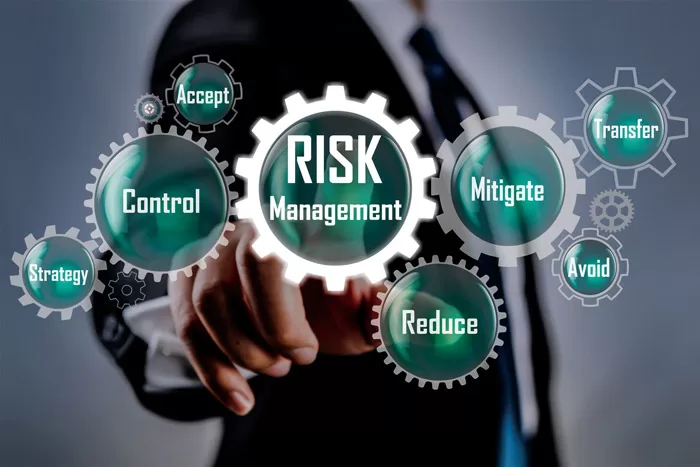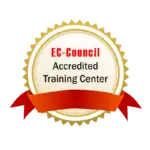In an increasingly complex and unpredictable business landscape, effective risk management is vital for organizations to mitigate potential threats and seize opportunities. Risk managers play a crucial role in identifying, assessing, and managing risks within an organization. To excel in this field, risk managers must possess a diverse set of skills. This article explores the key skills required for risk managers, strategies to improve these skills, and highlights top companies seeking professionals with risk management expertise.
What Does a Risk Manager Do?
Before delving into the essential skills, it’s important to understand the responsibilities of a risk manager. Risk managers are responsible for identifying potential risks that could impact an organization’s objectives and implementing strategies to manage and mitigate those risks. They analyze data, conduct risk assessments, develop risk management frameworks, and collaborate with stakeholders to ensure effective risk mitigation measures are in place. Risk managers also play a crucial role in developing contingency plans and providing guidance to senior management on risk-related decisions.
clslearn offers you the best courses in the course of Risk Management Workshop
What are Risk Manager Skills?

- Risk Assessment and Analysis:
Risk managers must possess strong analytical skills to assess and analyze potential risks. They should be able to identify, evaluate, and prioritize risks based on their potential impact and likelihood. This involves understanding various risk factors, performing quantitative and qualitative risk assessments, and utilizing risk management frameworks and methodologies.
- Industry and Business Knowledge:
Risk managers need a deep understanding of the industry and business they operate in. This includes knowledge of relevant regulations, market dynamics, and industry-specific risks. It is essential to stay updated on emerging trends, technologies, and regulatory changes that may impact the organization’s risk profile.
- Communication and Influencing:
Effective communication is vital for risk managers to convey risk information to stakeholders at all levels of the organization. They must translate complex risk concepts into clear, concise language that non-technical stakeholders can understand. Risk managers should also possess strong influencing skills to persuade key decision-makers to adopt risk management strategies and make informed decisions.
- Problem-Solving and Decision-Making:
Risk managers need excellent problem-solving skills to identify root causes of risks and develop appropriate risk mitigation strategies. They must be able to think critically, analyze data, and make sound decisions under pressure. Risk managers should also be skilled in scenario planning and have the ability to anticipate and respond to evolving risks.
- Project Management:
Risk management often involves coordinating and implementing risk mitigation initiatives across various departments and teams. Therefore, risk managers must possess project management skills to effectively plan, execute, and monitor risk management projects. This includes skills in managing timelines, resources, and stakeholders, as well as tracking and reporting project progress.
- Technology and Data Analysis:
Proficiency in utilizing technology and data analysis tools is becoming increasingly important for risk managers. They should be familiar with risk management software, data visualization tools, and data analytics techniques. This enables them to effectively collect, analyze, and interpret risk data, identify patterns, and generate actionable insights for informed decision-making.
get to know: COST PERFORMANCE INDEX (CPI) FOR PMP
How to Improve Risk Manager Skills?
- Continuous Learning:
Risk managers should actively seek opportunities for professional development. This may involve attending industry conferences, seminars, and workshops to stay updated on the latest risk management practices and trends. Pursuing relevant certifications, such as Certified Risk Manager (CRM) or Professional Risk Manager (PRM), can also enhance credibility and demonstrate expertise in the field.
- Networking and Collaboration:
Engaging with other risk management professionals through networking events, industry associations, and online communities can provide valuable insights and knowledge-sharing opportunities. Collaborating with peers can help broaden perspectives, gain new ideas, and learn from others’ experiences in managing risks
- Cross-Functional Experience:
Gaining exposure to different business functions and roles within an organization can provide valuable insights into the interconnectedness of risks across departments. Seeking opportunities to work on cross-functional projects or job rotations can enhance risk managers’ understanding of various operational risks and enable them to develop holistic risk management strategies.
- Enhancing Communication Skills:
Risk managers can improve their communication skills by participating in workshops or training programs focused on effective communication and presentation techniques. Practicing clear and concise communication, both written and verbal, will enable risk managers to effectively convey risk information to stakeholders and facilitate meaningful discussions.
- Embracing Technology:
Risk managers should stay updated on technological advancements relevant to risk management. This may involve taking online courses or training programs on data analysis, data visualization tools, and risk management software. Embracing technology enables risk managers to leverage data-driven insights, automate processes, and enhance overall risk management effectiveness.
get to know: BUSINESS ANALYST ROLES AND RESPONSIBILITIES
Top Companies Hiring for Risk Managers Based on Skills:

- JP Morgan Chase & Co.
- Goldman Sachs
- PwC
- Deloitte
- Ernst & Young
- Microsoft
- Amazon
- IBM
- Accenture
- General Electric
Demand for Risk Managers:
The demand for skilled risk managers is on the rise across various industries. Organizations understand the importance of proactive risk management in safeguarding their operations and reputation. Risk managers are sought-after professionals in sectors such as finance,insurance, healthcare, technology, and consulting. As businesses navigate an increasingly complex and uncertain environment, the need for professionals who can effectively identify, assess, and manage risks has become paramount.
Risk managers play a critical role in protecting organizations from potential threats and maximizing opportunities. They require a diverse skill set, including risk assessment and analysis, industry knowledge, communication and influencing abilities, problem-solving and decision-making skills, project management expertise, and proficiency in technology and data analysis. By continuously improving these skills through learning, networking, cross-functional experience, and embracing technology, risk managers can position themselves as valuable assets in the ever-evolving field of risk management. As demand for risk management professionals continues to grow, organizations across various industries are seeking individuals with these essential skills to ensure effective risk mitigation and sustainable business success in an increasingly uncertain world.
























